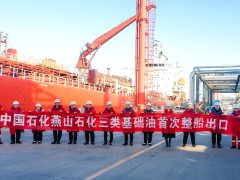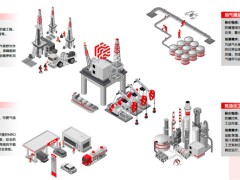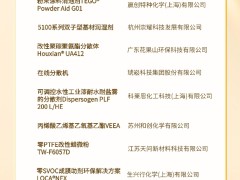• 沙特阿美宣布计划将其石油日产能提高到1300万桶,此举旨在确保全球未来的石油供应
• 短期内,沙特阿拉伯已明确表示,在当前的欧佩克+计划之外,没有任何增加石油产量的意图
据美国油价网3月22日报道,沙特石油巨头沙特阿拉伯国家石油公司(沙特阿美)日前公布了最新的财务业绩。 在报告中,沙特阿美宣称其去年净利润增加了两倍,在油价飙升一年以后,这个业绩并不令人意外。
但沙特阿美还表示,该公司计划将其最大的可持续石油日产能提高至1300万桶,这可能会让能源紧缺的西方石油进口商对未来石油供应感到乐观。
从长期来看,沙特阿美石油产能的提高肯定会对石油进口国是个好消息。 然而,问题是这些石油进口国现在正处于能源匮乏的状态——或者更确切地说,在这方面,沙特阿拉伯没有提供任何帮助。
沙特阿拉伯王国已多次表明立场。 事实上,沙特阿拉伯基本上对白宫要求欧佩克+增加石油产量的呼吁置若罔闻,这应该已经足够了,但它没有。 在白宫意识到沙特阿拉伯不肯让步之前,他们又打了几个电话,要求越来越高。 如果沙特阿拉伯不让步,其他欧佩克或欧佩克+成员国也不会让步。
然后,轮到英国了。 英国首相鲍里斯·约翰逊3月份访问了沙特阿拉伯和阿拉伯联合酋长国,正式讨论能源市场形势,而不是像《华尔街日报》报道的那样,正式要求增加石油产量。
据《华尔街日报》报道,英国首相的发言人表示,“他对冲突引发的混乱表示深切的担忧,并强调共同努力改善全球能源市场稳定的重要性。”
然而,接待英国首相的东道主显然有不同的看法。 《华尔街日报》援引未具名的沙特政府官员的话称,约翰逊首相此次出访基本上是空手而归。 事实上,沙特国家通讯社称,英国首相与王储穆罕默德讨论了国际地缘政治形势,但完全没有提到石油市场。
以美国和英国为代表的西方,如今发现自己处于进退两难的境地。 尽管大西洋两岸的政客们都对可再生能源表现出极大的热情,但石油和天然气仍然是维持经济发展的关键。 当然,在两国开始实施制裁之前,人们可能已经想到了这一点,但很显然,事情太紧急以致于他们无法停下来思考。
现在,他们将被迫停下来思考。 沙特阿拉伯正在提高石油产能,因为它坚信有关石油需求枯竭的报道被严重夸大。 这对所有石油进口国来说是个好消息。 沙特阿拉伯是两个全球最大原油进口国的主要原油供应国。 而且似乎与他们的政治关系要好得多。 很有可能,利雅得会优先考虑亚洲客户而不是西方盟友,哪怕只是为了给后者一个教训。
李峻 编译自 美国油价网
原文如下:
Saudi Arabia’s Production Capacity Boost Doesn’t Solve Today’s Problems
· Saudi Aramco has announced plans to boost its oil production capacity to 13 million bpd, a move that will ensure supply in the future.
· In the short term, Saudi Arabia has made it clear that it has no intention of increasing oil production beyond the current OPEC+ plan.
Saudi state oil giant Aramco reported its latest financial results last weekend. In the report, the company boasted a twofold jump in net profits for 2021, which was hardly a surprise after a year of soaring oil prices.
But the company also reported plans to boost its maximum sustainable production capacity to 13 million bpd, likely sparking optimism about future supply among energy-starved importers in the West, at least according to this Quartz article.
Over the long term, a boost in Saudi oil production capacity would certainly be good news for oil importers. The problem, however, is that these importers are energy-starved now - or rather, they want to avoid being energy-starved if they decide to increase their sanctions on Russia. In this, no help is coming from Saudi Arabia.
The Kingdom has made its stance clear on numerous occasions. The fact that it basically turned a deaf ear on calls from the White House to boost OPEC+ production should have been enough, but it wasn’t. Several more calls, escalating to demands, were made before the White House realized Saudi Arabia wouldn’t budge. And if Saudi Arabia doesn’t budge, neither will the rest of OPEC or OPEC+.
Then it was The UK’s turn. Prime Minister Boris Johnson visited both Saudi Arabia and the United Arab Emirates this month, officially to discuss the energy market situation, not so officially to ask for more oil, as this Wall Street Journal report said.
The UK’s Premier, according to a spokesperson, “set out his deep concerns about the chaos , and stressed the importance of working together to improve stability in the global energy market,” the WSJ reported.
His hosts, however, apparently saw things differently. The Wall Street Journal cited unnamed Saudi government officials who said that Johnson had basically left empty-handed. Indeed, the Saudi state news agency said the UK’s Prime Minister had discussed the international geopolitical situation with Crown Prince Mohammed but did not mention oil markets at all.
That the love between the West and the Middle East has cooled recently is not news. It has been a prolonged process. Yet it seems that some in the West have failed to grasp the fact that this process has been unfolding.
The West, as represented by the U.S. and the UK, has found itself between a rock and a hard place. For all the renewable energy enthusiasm exhibited by politicians on both sides of the Atlantic, oil and gas have continued to be essential to keep the economy going. Of course, this could have been thought about before the two started with sanctions, but apparently, things were too urgent to stop and think.
Now, they will be forced to stop and think. Saudi Arabia is boosting its oil production capacity because it firmly believes reports of the death of oil demand are strongly exaggerated. This is good news for importers, and this means all importers. Saudi Arabia is a big supplier, two of the biggest importers. And it seems to have much better political relations with them. Chances are, Riyadh will prioritize its Asian clients over its Western allies if only to teach the latter a lesson.
免责声明:本网转载自其它媒体的文章及图片,目的在于弘扬石化精神,传递更多石化信息,宣传国家石化产业政策,展示国家石化产业形象,参与国际石化产业舆论竞争,提高国际石化产业话语权,并不代表本网赞同其观点和对其真实性负责,在此我们谨向原作者和原媒体致以崇高敬意。如果您认为本站文章及图片侵犯了您的版权,请与我们联系,我们将第一时间删除。







